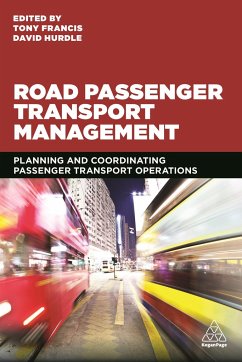Road passenger transport management is an important role, involving the planning and coordinating of passenger transport operations, including routes and schedules. Managers ensure that passengers reach their destinations safely, on time and in the most cost-effective way. Road Passenger Transport Management covers all the essential tasks a transport manager is expected to master. Road Passenger Transport Management provides tips and tools for working with customers, planning routes and scheduling delivery times, as well as managing a team of supervisors, administration staff and drivers. The authors include guidelines for coordinating staff training and arranging vehicle maintenance, MOTs and tax payments, as well as organizing vehicle replacements and managing contracts and developing new business. This is a contributed book, with expertise shared from well-known academics and practitioners who have spent many years in the passenger transport field. The tools and case studies in this vital new guide will enable readers to learn new skills or build on existing expertise. Online supporting resources include sample performance reports and target assessment forms.
Hinweis: Dieser Artikel kann nur an eine deutsche Lieferadresse ausgeliefert werden.
Hinweis: Dieser Artikel kann nur an eine deutsche Lieferadresse ausgeliefert werden.








